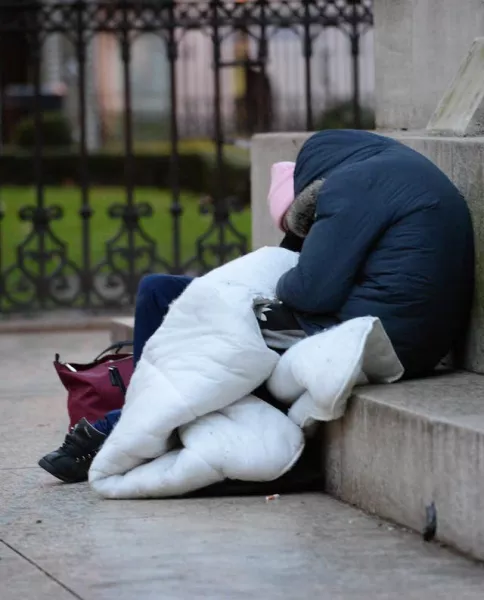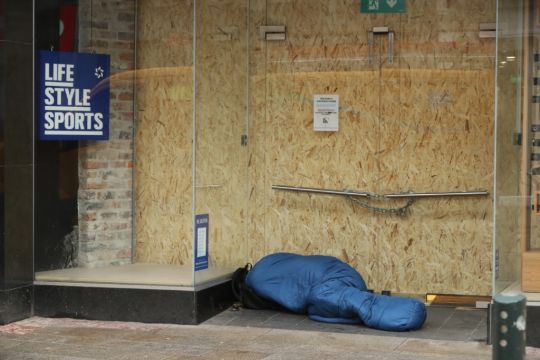Private emergency accommodation must be “quickly phased out” and replaced with appropriate long-term housing, an Oireachtas committee report has said.
The interim report on homelessness also recommended that the Minister for Housing Darragh O’Brien phases out the use of private security firms in emergency homeless accommodation and publishes a timeline.
The report, published by the Joint Committee on Housing and Local Government, sets out 17 key recommendations on how to tackle prevalent issues faced by those who are homeless or living in emergency accommodation.
The committee heard from a number of expert witnesses, including Brendan Kenny and Mary Flynn, from the Dublin Region Homeless Executive (DRHE), Professor Eoin O’ Sullivan, from Trinity College Dublin, and Alice Leahy, from the Alice Leahy Trust.

The report said the Housing First initiative should be “significantly expanded” and called for targets to be revised annually in a needs assessment.
It also said the Housing First scheme should ensure that single people with overnight access to their children are given two-bedroom accommodation.
The report called for an agreed methodology to be introduced between the HSE, the Department of Housing and the DRHE on recording the deaths of people experiencing homelessness.
The report also said that deaths of homeless people should be subjected to an adult safeguarding review to prevent similar incidents from reoccurring.
Dr Austin O’Carroll, a North Dublin city GP, published a separate report on the deaths of people experiencing homelessness.
He said it is “very difficult” to accurately estimate death rates as the state does not have accurate data on the number of people entering and leaving homelessness.
“It is likely that we overestimate death rates as a result,” he told the committee.
“The deaths of people experiencing homelessness is a deeply sad and upsetting event.
“There were 79 deaths of people experiencing homelessness in 2020.
“We focused on the 47 deaths in single homeless accommodation.”
Of these deaths, three were rough sleepers and 44 were based in homeless accommodation.
“The number of homeless deaths has risen since 2016, however so has the number of people experiencing homelessness,” Dr O’Carroll added.
“The effect of Covid on our mortality rate is minimal due to the significant success of the joint HSE operation.
“We found those who experienced long-term homelessness had a much higher death rate.
“Seven people died outdoors, of whom four had been sleeping in DRHE accommodation the night prior to their deaths and three were known rough sleepers.”
He said that drugs and alcohol were the main causes of factors in 40% of deaths of those who are homeless.
“Childhood trauma is also associated with poverty and lower life expectancy. One in three homeless people have attempted suicide at some stage in their lives,” he added.
“Homelessness is invidious to health – it worsens and in some cases causes drug addiction and worsens mental illness issues.”
He called for a review of all homelessness deaths to prevent further cases.
The report also calls for the immediate resumption of inspections of emergency accommodation for homeless people which were suspended due to Covid-19.
Sinn Féin’s Eoin Ó Broin said: “Unfortunately because of Covid, the issue of homelessness, particularly single person homelessness and the recent increase in deaths, hasn’t got the media or political attention it should have got.
“With 17 key recommendations, some of the key ones are the call for an increase to Housing First.
“We also need an agreed methodology for counting the deaths of people who are experiencing homelessness and safeguarding reviews which are absolutely key.”
He also called for a six-month review of the report to assess how government and various agencies are responding to its publication.







